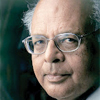During foreign trips PM should not feel ashamed of throwing his weight behind our businessmen
Manmohan Singh had a soft corner for Japan. It had bailed out India before and during the 1991 crisis. Soon after he became finance minister, he flew to Tokyo, to thank the Japanese prime minister. I was with him. It was nice to have an entire Air India plane to ourselves. One unwelcome guest did get on the flight somehow. He was a failed industrialist whose name is a derivative of one of Krishna’s names. I do not know how he got in; he must have known someone important. I would not have liked to be him; he was ignored by everyone. Anyway, he could not smuggle himself into official meetings; once we reached Tokyo, he vanished, to reappear on our return flight.
Even without him, the official visit was not very enjoyable. We would go to see, say, the finance minister. When we got to his office, we would be led into a meeting room to wait. Then he would appear with his henchmen, there would be some vigorous handshaking between the two finance ministers, and then the two would sit down on opposite sides of a table, accompanied by their henchmen. He would then welcome our finance minister in Japanese, which would be translated by our interpreter. Our finance minister would then thank him, and say his piece about eternal gratitude, which would be translated by our interpreter. His counterpart would ask if we had a comfortable stay; and the meeting would end. It was an expensive trip, but for me at least it was deadly boring.
That was when I was in the government. I also did a trip – to a G20 meeting – as a journalist, though I had no reporting duties. That was worse. As one of the rulers I had sat in first class; as a reporter I was herded into business class. That was not so bad; there was a gang of security guys who were packed in the tourist class. The caste distinctions persisted on the ground: the prime minister was whisked away to a swanky hotel, we were taken to a not-so-great hotel, and the plainclothes policemen – I do not know where they were taken; maybe they perched on the shoreline benches.
So I can sympathize when Sunil Mittal complains about trips with the prime minister. Sometimes, the prime minister takes a group of businessmen with him. But they too are herded in business class. The prime minister may descend there and address the businessmen for an hour or so; but otherwise, they do not even get his scent. Once he reaches his destination, he goes off to his official meetings; they are left to twiddle their fingers till he finishes. And, as Sunil Mittal complained, the businessmen have to pay for the privilege of being sequestered from the prime minister.
But that is trivial; Sunil Mittal does not have to go with the prime minister when invited. Many businessmen will go just to avoid the possibility of displeasing the prime minister or his bureaucrats. That was important in the days of controls; but after we decontrolled the economy in the early 1990s, it hardly matters. Businessmen can go about their business without giving a thought to the flunkeys in Delhi.
But Sunil Mittal was complaining about something else. He mentioned his visit to Moscow with Manmohan Singh. The prime minister went into the meeting with Vladimir Putin. Putin introduced him to Vladimir Petrovich Yevtushenkov, president of Sistema, and asked him to give Sistema a telecommunications licence in India. One of Manmohan Singh’s flunkeys asked Sunil Mittal after the meeting who Yevtushenkov was. Sunil Mittal told him he should have taken him to the meeting, so that he too could have asked for a licence in Russia.
The point he was making is that in businesses like telecommunications, it makes a difference if the company of a country is helped by its government. Other governments commonly do this: we might remember David Cameron bringing an entire planeload of British businessmen to Bangalore, and joining them in a conference with Indian businessmen. In our socialist days, it was the custom for politicians in power to treat businessmen as pariahs. I guess that since 1991, our rulers have been half socialist and half capitalist, like mules. They would travel in the same flight as businessmen, but meeting their eye would be sinful.
That was stupid. Now that we have a different prime minister, I hope he will change the practice. If he takes businessmen in his flight, he should also spend time with them, one to one; and he should not avoid being seen with them in foreign countries. I can think of one reservation: what if a prime minister is seen with some businessman who later turns out to be a crook? Just as the Securities and Investment Board of India (SEBI) has a list of qualified institutional investors, the prime minister’s office (PMO) should make a list of qualified businessmen, and choose his companions on trips abroad from it.
The story appeared in December 1-15, 2014, issue

